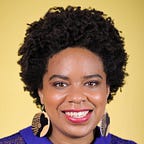Addressing the Oversaturation of Drug Clinics in Harlem
As an educator, community organizer and a candidate running for city council, I have had numerous discussions with the people of Harlem about this issue, and I agree — there is a significant oversaturation of drug clinics in Harlem.
I am a third-generation Harlemite and I too have noticed an increase in drug clinics peppered around my district (district 9) and neighboring parts of Harlem. But the problem is not that drug clinics exist in Harlem. In fact, drug clinics provide vital services for drug rehabilitation and recovery. If anything, these social services should receive more funding and resources to tackle the excess of addiction in our City. The problem is that the oversaturation is not based on addiction rates or drug related death rates at all. Instead, the overconcentration of drug clinics in Harlem is based on historic and persistent Medical Redlining of our community.
Medical Redlining is the practise of disproportionally locating addiction programs in communities like East Harlem, that other wealthier communities have rejected. Medical redlining tends to affect low-income communities of color. And it is true, Harlem has become a dumping ground for drug clinics primarily because more affluent parts of New York have not allowed such a concentration of drug clinics in their districts. Addiction programs that other wealthier communities have successfully blocked are repeatedly located here. And that is simply not ok.
As a result, 84% of patients in East Harlem’s opioid treatment programs commute into our district for treatment. Why are 84% of patients from all over New York traveling to our communities for treatment? Our community is shouldering far more than its weight which is yet another example of how affluent communities effectively organize to keep the homeless, the needy and drug-users out of their districts, and how excess of those services end up in places like Harlem.
The broader question, however, is why don’t other districts have the same treatment capacity for their own constituents seeking drug-related services? Our goal is to provide high quality treatment for people who use drugs, and forcing people to travel far away from their homes and communities to access care is highly detrimental to their treatment. Obtaining local access to services in one’s own community is far better for an individual rather than having to travel a distance to receive care. Treatment that is more accessible due to locality, is a far more agreeable decision to make when an individual decides to choose to rehabilitate. It allows patients to feel more connected with their loved ones and community, and allows family and friends to be actively involved in the treatment process. Further, administrators will be more familiar with the local area and its resources, making it easier for them to create aftercare plans for patients. All of which substantially aids recovery. Which leads me to my next concern.
Given the above, do health agencies even prioritize patient outcomes? Let us not forget the capitalist hand behind all of this. Health agencies’ contribution to this mess is often missing from the narrative. The increase of drug clinics is a money maker for the health industry who place little focus on patient outcomes. They, with impunity, saturate working class and poor neighborhoods because they receive little pushback from rich and powerful voices. It is vital that agencies who get involved with public money, be accountable for their actions. Creating damage in Harlem without any accountability on the impact on the community or the outcomes of patients is indeed negligent. I believe drug treatment needs to be administered holistically by treating underlying trauma, involving families in the process, helping individuals feel like they contribute to society by providing assistance with seeking employment, affordable housing and nutrition. This is certainly not the approach taken by health agencies and is certainly not possible when patients do not have enough access to services in their local districts, and instead have to travel to Harlem for care.
A dual concern is that our communities are disproportionately overpoliced, and so the oversaturation of drug clinics, halfway houses, homeless shelters, and psychiatric institutions directly leads to targeted policing and the criminalization of drug-users in our communities. Since our constituents live in a police state, there is no avoiding it. Although the truth of the matter is, police should not be involved in any interactions involving drug-users as they have proved time and time again, their inability to de-escalate, as compared to social workers and health workers.
The truth is, we are here because of medical redlining and racism. Centuries of economic disparities has meant that we cannot defend ourselves in the same way rich folk can. As a result, we are left to carry more than our weight, in the same way our communities are disproportionately burdened with air pollution and waste dumping grounds. I promise to fight for the highest quality of drug treatment for my district and for all districts, and that involves each district having a strong treatment capacity proportionate to its local need. I also promise to hold health agencies accountable for their actions and their lack of priority in patient outcomes.
Kristin Richardson Jordan (KRJ), Candidate for New York City Council District 9 Kristin is a poet, local activist, speaker, teacher, DSA member, Black queer woman, and third-generation Harlemite on a mission to disrupt District 9 (Central Harlem) with radical love. Started almost a year and a half before the murder of George Floyd, her Kristin for H.A.R.L.E.M. political platform includes advocacy for police accountability, abolition, affordable housing, redistribution of resources, senior care, gun control, education, and environmental justice. She is interested in making change both through her grassroots campaign and through a community-based participatory democracy once elected and has drafted policy on each of her HARLEM platform points. Find out more and get involved at KristinForHarlem.com.
